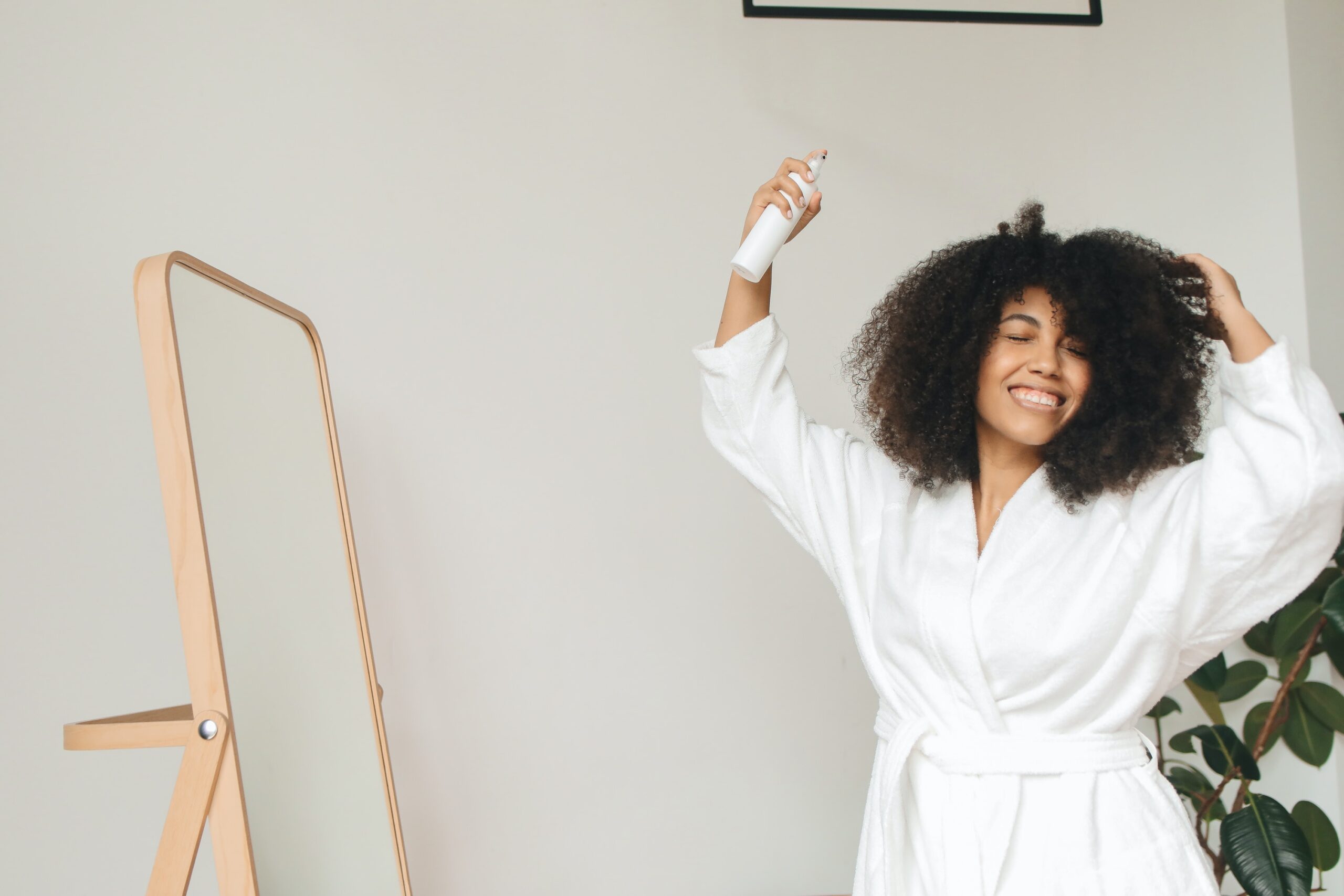From silk presses to natural coils, Black hair can be styled in various ways. However, wash days can be a hassle. Dry or no rinse shampoo is an alternative to a full cleanse that, traditionally, has not been marketed to Black women with afro-textured hair.
CurlCentric founder, Kira Byrd has specialized in natural hair since 2008. She took an interest in natural hair after her daughter struggled with her curly tresses. She’s since authored “Curly Kids Coloring Book” and “The LooseyGoosey Tooth” for Black children. The curly hair specialist also recently published a guide on the effectiveness of dry shampoos. Byrd gave her no rinse shampoo expertise to 21 Ninety.

Can Dry Shampoo Be Used On Black Hair?
Byrd told 21 Ninety people with Black hair can utilize no rinse shampoo. However, the product’s effectiveness depends on an individual’s hair needs and texture. Afro-textured strands require moisture. A dehydrated scalp is never healthy. Byrd says type 4 hair is typically more delicate, and fragile. She encourages Black women with type 4 coils to not overuse no rinse shampoo because the product could potentially strip away the hair’s natural oils
How to Apply Dry Shampoo
Bryd mentions dry shampoo should be used sparingly. She recommends Black women look for dry shampoos specifically formulated for afro-textured or natural hair. Byrd recommends brands like Cantu and Carol’s Daughter because these products are specifically designed for natural hair. The hair care specialist said dry shampoo is designed to absorb excess oil. It should be used when your hair needs to be refreshed in-between washes.
To accurately apply dry shampoo, section off the hair. Then, spray or sprinkle each section depending on your liking. Byrd suggest parting hair into four sections, then work the product through each portion of hair.
Byrd told 21 Ninety this approach ensures the the dry shampoo effectively saturates the hair. The author said to apply the dry shampoo directly onto your roots, focusing primarily on these areas rather than the mid-lengths and ends of your hair. Byrd also advises applying the dry shampoo a bit beyond the scalp, but this technique shouldn’t be a frequent requirement. Let the product sit for a few minutes to absorb the oil, then gently massage it into your scalp.
If using a dry shampoo spray make sure to hold the bottle between 6-8 inches away from the hair when applying to avoid excess residue. In Byrd’s dry shampoo guide, she says dry shampoo works best at night. This technique allows the product to absorb the excessive oils while you rest. The freshly “shampooed” hair will look refreshed and voluminous in the morning.
Dry Shampoo And Heat Styling
Bryd advises to use dry shampoo once or twice a week. Those who oversaturate their coils with dry shampoo can cause scalp build-up and dryness. Women can use dry shampoo to refresh their silk presses. Byrd suggests heat styling after using dry shampoo. But remember, dry shampoo is not a heat protectant. The hair educator said incorporate a separate heat protectant to protect the hair from heat damage.
Should Black Women Cleanse Their Hair With Regular Shampoo or Dry Shampoo?
Byrd told 21 Ninety dry shampoo does not replace regular hair cleansing. She said the product is a temporary solution to “refresh hair” between washes. The hair guru said Black women should cleanse their hair with regular shampoo or conditioner when your hair starts to feel weighted. She encourages Black women to cleanse their hair every 7-10 days. However, Byrd says Black women rocking protective styles might cleanse their hair sparingly depending on their personal needs.

